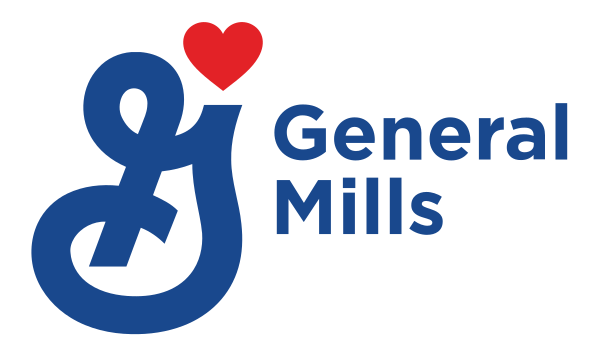Motor Maintenance Solutions
Prevent costly motor failures with AI-powered predictive maintenance designed for electric motors. Monitor bearing health, winding insulation, rotor condition, and electrical faults to reduce downtime by 80% and extend motor life by 50%.
TRUSTED AND SUPPORTED BY














Common Motor Failures We Detect
Our AI-powered system identifies and predicts the most costly motor failures before they cause production shutdowns.
Bearing Deterioration
Bearing failures account for 40% of motor breakdowns, causing vibration and heat.
- Inner and outer race wear patterns
- Ball and roller deterioration
- Lubrication breakdown and contamination
Winding Insulation Failure
Insulation breakdown leads to short circuits and motor burnout.
- Thermal degradation from overheating
- Moisture and contamination damage
- Electrical stress and voltage spikes
Rotor Bar Cracking
Rotor bar failures cause torque variations and electrical imbalances.
- Thermal cycling stress and fatigue
- Starting torque stress damage
- Manufacturing defects and material flaws
Overheating Issues
Excessive heat accelerates all other failure modes and reduces motor life.
- Blocked ventilation and cooling failures
- Overloading and excessive current draw
- Ambient temperature and environment factors
Misalignment Problems
Shaft misalignment causes premature bearing wear and vibration.
- Angular and parallel misalignment
- Coupling wear and deterioration
- Foundation settling and movement
Electrical Imbalances
Voltage and current imbalances cause inefficiency and component stress.
- Phase voltage and current variations
- Power quality and harmonic distortion
- Single-phasing and voltage drops
Advanced Motor Monitoring Technology
Our comprehensive motor monitoring system combines multiple technologies to provide complete visibility into motor health and performance.
Vibration Analysis
Advanced vibration monitoring detects bearing wear, imbalance, misalignment, and mechanical looseness with precision frequency analysis.
Motor Current Signature Analysis
MCSA technology analyzes electrical current patterns to detect rotor bar cracks, eccentricity, and electrical faults.
Thermal Monitoring
Temperature sensors detect overheating conditions, winding hot spots, and cooling system issues.
Power Quality Analysis
Monitor voltage, current, power factor, and harmonics to ensure optimal motor operating conditions and efficiency.
Sensor Technologies
Monitoring Capabilities
- Bearing health and lubrication condition
- Rotor bar integrity and electrical balance
- Winding insulation resistance monitoring
- Energy efficiency and power consumption optimization
Industry Applications
Motor predictive maintenance delivers critical value across industries where electric motors are essential to operations.
Manufacturing
Critical production motors where failure causes immediate production loss.
HVAC Systems
Building comfort systems requiring high reliability and energy efficiency.
Water Treatment
Pump motors critical for municipal and industrial water systems.
Oil & Gas
Compressor and pump motors in harsh operating environments.
Motor Maintenance ROI
Calculate your potential savings from predictive maintenance on electric motors.
Prevent unexpected motor failures with early warning detection
Optimal operating conditions and maintenance timing
Efficiency optimization and performance monitoring
Fast payback through reduced replacement and energy costs
Cost Savings Example: Manufacturing Facility
Before Predictive Maintenance
- Annual downtime cost:$800,000
- Emergency motor replacements:$240,000
- Energy inefficiency costs:$180,000
- Total Annual Cost:$1,220,000
After Predictive Maintenance
- Annual downtime cost:$160,000
- Planned motor maintenance:$120,000
- Optimized energy costs:$144,000
- Total Annual Cost:$424,000
Technical Specifications
Comprehensive motor monitoring technology designed for industrial electric motor applications.
Sensor Specifications
- Vibration Range: 0.1-10,000 Hz
- Temperature Range: -20°C to +85°C
- Wireless Range: Up to 40m line-of-sight
- Battery Life: 5+ years typical operation
- Protection Rating: IP69 industrial grade
Monitoring Points
- Drive End Bearing: Vibration, temperature
- Non-Drive End Bearing: Vibration, temperature
- Motor Housing: Temperature, vibration
- Electrical Connections: Current, voltage, power
- Cooling System: Airflow, temperature
- Coupling/Load: Alignment, torque
Alert Capabilities
- Bearing Degradation: 6-12 weeks advance notice
- Rotor Bar Cracks: 4-8 weeks early detection
- Insulation Breakdown: Progressive degradation tracking
- Overheating: 5°C rise above baseline
- Efficiency Loss: 5% performance deviation
- Critical Failures: Immediate shutdown alerts
Transform Your Motor Maintenance Program
Join manufacturers and facilities already preventing costly motor failures. Our motor specialists will assess your equipment and design a custom monitoring solution.
Frequently Asked Questions
We've got everything you need to get started on your predictive maintenance journey.